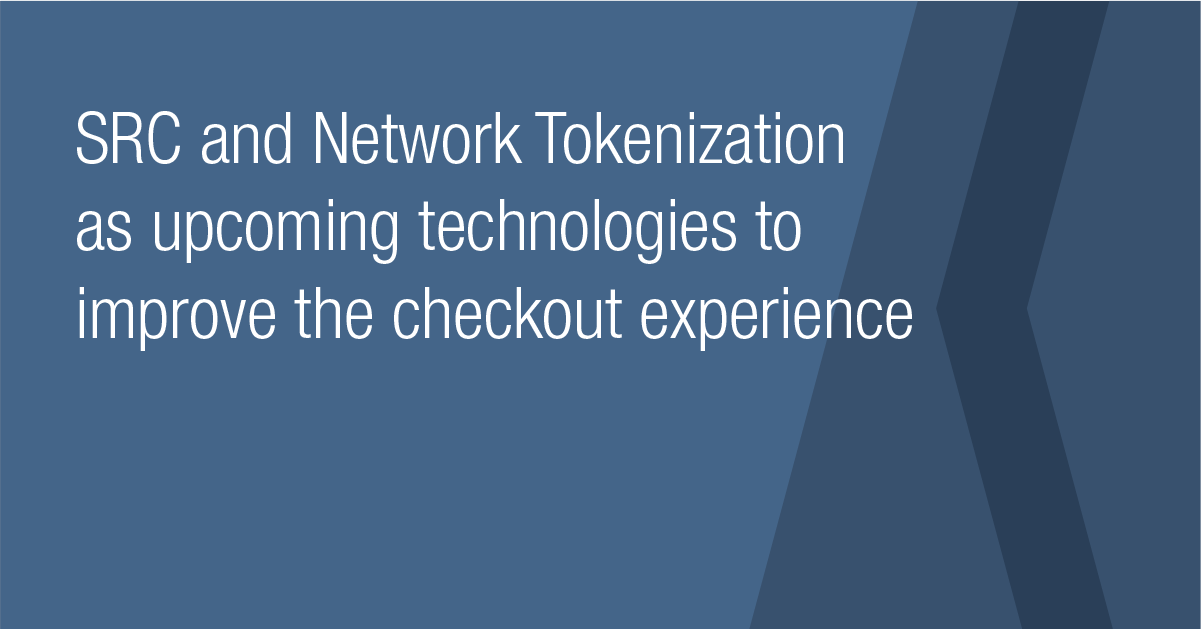Overall, European customers use a credit card directly or via wallet in 61 percent of all checkouts. For many customers, direct checkout is still too complicated and time-consuming. All this leads to purchase cancellations and lower conversion rates. These problems are further exacerbated when customers increasingly use mobile devices for online shopping.
Solutions for checkout problems
There are two main solutions to this problem: Network Tokenization and the new Secure Remote Commerce standard from EMVCo, which will enable customers to make simple payments in future as a "Click to Pay".
With tokenization, the card number is replaced by a token, thus reducing the risk of theft of card data. In addition, information about the card lifecycle is used to provide a seamless user experience, especially with cards-on-file (card data stored at the merchant).
Secure Remote Commerce (SRC for short) is designed to further enhance the user experience at Guest Checkout and automatically provide card information at a second checkout on the same device.
The most important cornerstones of SRC:
- EMVCo developed SRC as a neutral solution and will replace MasterPass and Visa Checkout.
- Customers can pay safely and easily by using a uniform SRC checkout button.
What this will look like in real life can already be experienced in some online shops in the USA. There, the SRC button shows the new SRC sign and additionally the familiar Mastercard, Visa and American Express logos. The system distinguishes between new users and known customers. For known customers, the system automatically identifies the customer, the cards available and the terminal device used. New customers can register with just a few steps.
Kurt Schmid, Marketing & Innovation Director Secure Digital Payments at Netcetera: "One of the most important advantages of SRC is the automatic recognition of users and their end devices. This provides more security and at the same time further simplifies the checkout process".
Interaction of Different Roles
Five different roles are defined in the SRC rules and regulations:
- The Digital Payment Application (DPA) ensures the integration of the SRC client software into the online shop (both browser-based and in an app). The integration of Alexa or Facebook Manager is also conceivable.
- The SRC initiator (SRCI) provides the merchant (or his PSP) with the SRC software and the connection to the SRC System.
- The SRC System stores the digital cards and other data and organises the cooperation of the SRC participants in the purchase process. This role is performed by the card organisations.
- As card issuer the SRC Participating Issuer takes over the registration of the cards and the cardholders for the participating SRC Systems.
- The Digital Card Facilitator (DCF) is an interface to take over the digital cards and their realistic representation from the SRC System.
EMVCo has described how these roles are to be interpreted in detail and how their interaction works in the SRC architecture. In practice PSPs will typically take over the role of SRC initiator, SRC System and DCF will be provided by the schemes.
Besides the allocation of the roles there are a number of other questions to be answered, for example how device binding and push provisioning is done, which scenarios are conceivable for SRC integration at the online merchant or how SRC works on mobile devices or Alexa and Co. Netcetera offers half-day SRC trainings, which can also be held at the customer's site if required.
SRC aka "Click to Pay" will enable customers to use their cards in e-commerce as easily as they are used to at the POS. In Europe, the start is expected in 2021. Mastercard and Visa play the most important role in bringing the new solution to the markets. As EMVCo Technical Associate, Netcetera contributes to the development of SRC and supports the market launch with consulting services.
Note:
EMV® is a registered trademark in the U.S. and other countries and an unregistered trademark elsewhere. The EMV trademark is owned by EMVCo, LLC.

